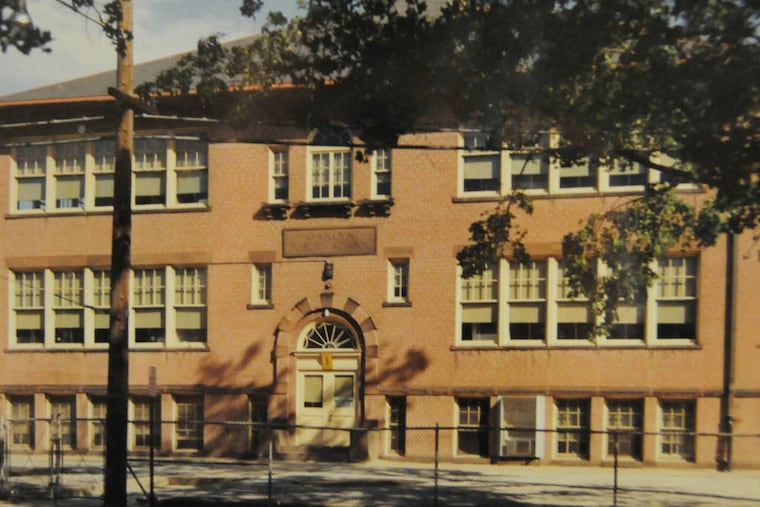Bringing back memories at former Oaklyn school
Peggy McDaniels walked into the center of the room where she taught Oaklyn second graders more than 50 years ago.

Peggy McDaniels walked into the center of the room where she taught Oaklyn second graders more than 50 years ago.
"My desk was right here. The piano was here, and that wonderful old clock hung right up there."
McDaniels, 76, paused.
"Oh, my goodness," she said, beaming. "This is so cool."
The Berlin Township resident was among a half-dozen retired teachers who gathered Monday at Oaklyn's former Mary A. Finney School as special guests of the borough's holiday luncheon for seniors.
About 100 people sat at round tables in the old school's auditorium; the Oaklyn student band played festive tunes as longtime friends embraced.
"I'm all nostalgic. I could shed a few tears without too much trouble," said Jackie DiBerardino, who was Jackie Finegan when she was a student - and later, a teacher - at Finney. The school closed in 1973.
"I had a starring role in a play in this auditorium when I was 9," said DiBerardino, 68, who divides her time between Manhattan and Ocean City, N.J. "I don't remember the plot, but I remember my character's name, Miss Shelby."
Inside the circa-1910 building on Clinton Avenue near the White Horse Pike, a hoagie buffet was laid out and classroom memorabilia - including a refinished pair of wooden auditorium chairs - was on display.
Although portions of the Finney building were demolished in the 1970s, the auditorium and several classrooms were incorporated into the headquarters of the Oaklyn Fire Department.
The facility, and the adjacent borough hall, are something of a civic center in Oaklyn, a busy, blue-collar Camden suburb of 4,000 people living in less than one square mile.
"Oaklyn is the type of town where people tend to stick around from generation to generation," observed history buff and borough Councilman Chuck Lehman. He helped organize the event and acted as master of ceremonies.
"There's just this bond that we have," said Carol Pierson, 59, who was in McDaniels' second grade class and lives in the borough.
"Everybody knew their friends' parents, their friends' siblings. Everybody knew all the police officers. . . . Everybody knew everybody."
Originally called the Clinton Avenue School, the building was erected in 1910, five years after what is now Oaklyn seceded from Haddon Township and became its own municipality.
"Until 1927, [this] was the only school building in town," said Lehman.
Now that distinction belongs to the pre-K-through-ninth-grade Oaklyn Public School, the future of which is uncertain due to a chronic budget crunch.
But the community certainly has found ways to stretch a dollar in the past.
"We fished 5,000 bricks out of the [Finney] rubble so the new building would match the old building," said David Aron, who was chosen to serve as Oaklyn's fire chief in 1976, the same year the department moved into its new headquarters.
He attended kindergarten through sixth grade at Finney, and walked to school; kids also walked home and back for lunch, too.
"It was fun then," says Aron, 78, who recalls coal dust from the school's heating system routinely being scattered on the schoolyard.
Other fondly remembered features of the place likely would appall modern parents - like McDaniels' semi-underground classroom, where students had to climb up to and then out of a grade-level window during fire drills.
Or the oil that was spread weekly on the hardwood floors throughout the building.
"Always, when you walked in, you had the aroma of oiled wood," said Ruth Harris, who was a student at Finney and later taught there.
That same aroma permeated my ancient elementary school in Massachusetts, a building that occupied a similar place in my heart. After it was demolished in the 1970s, I kept a souvenir brick for decades.
I've since lost it. But on Monday, people in the crowd in the old Finney auditorium were able to rediscover a bit of their past.
"This," Harris said, "is like home to me."